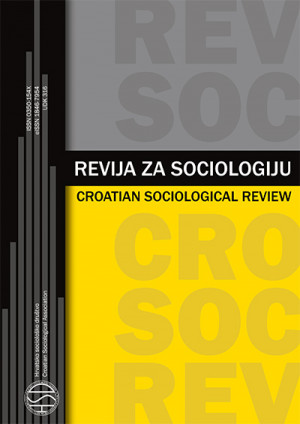Zašto su važni očevi dopusti i kvote? Komparativni pregled shema dopusta za očeve u europskim zemljama te čimbenika i učinaka njihova korištenja
Why are Paternity Leaves and Father’s Quotas Important? A Comparative Overview of Father’s Leave Schemes in European Countries and Factors and Outcomes of Father’s Leave Use
Author(s): Ivana Dobrotić, Mirna VargaSubject(s): Gender Studies, Family and social welfare
Published by: Hrvatsko sociološko društvo
Keywords: paternity leave; father’s quotas; parental leave; gender equality; child well-being;
Summary/Abstract: The 2017 proposal of the European Union directive on work-life balance attempts to introduce a four-month, non-transferable, paid parental leave (i.e. quotas) for each employed parent and ten days of paid paternity leave. The proposal is being justified by the need to improve the position of women in the labour market. The adoption of the directive would require Croatia to introduce ten days of paternity leave and extend the existing quotas from two to four months. Croatia did not initially provide unreserved support to the directive proposal. The arguments that were put forward indicated the traditionally perceived role of fathers in early childhood, insufficient understanding of the factors determining the take-up rates of fathers, as well as possible effects of the proposed reforms. This paper attempts to contribute to this debate by exploring the leave schemes in European countries, mainly the factors and the outcomes of the fathers’ use of leave. The take-up rates of fathers are primarily determined by the leave scheme, with the highest fathers’ take-up rates being achieved in the countries which have introduced the paternity leave and/or the non-transferability principle within the parental leave scheme (quotas) – but only if these are accompanied by high replacement income rates. The capability of exercising the right to leave is also determined by socio-economic and socio-demographic factors, workplace characteristics, as well as by the preferences and attitudes of parents and their immediate social surroundings. The father’s use of the leave brings a lot of benefits to the position of women in the labour market, as well as to the well-being of the child, the father, and the partner. The results of our study point to the importance of the reform of the Croatian leave scheme in order to extend the fathers’ rights and the activities aiming to change the notions of parenting in Croatia, including the norms and practices at the workplace which should aim to become more open to the fathers exercising the leave rights and to encourage them to use those rights.
Journal: Revija za sociologiju
- Issue Year: 48/2018
- Issue No: 2
- Page Range: 209-237
- Page Count: 29
- Language: Croatian

